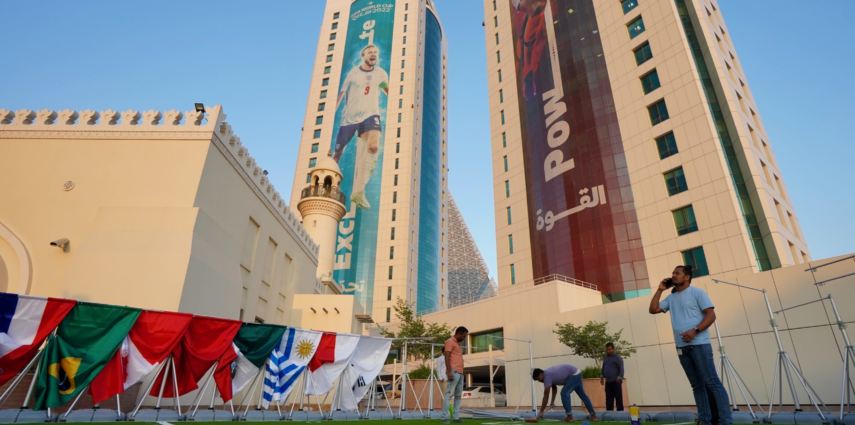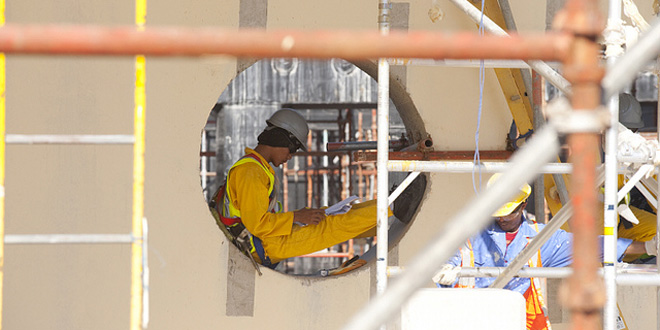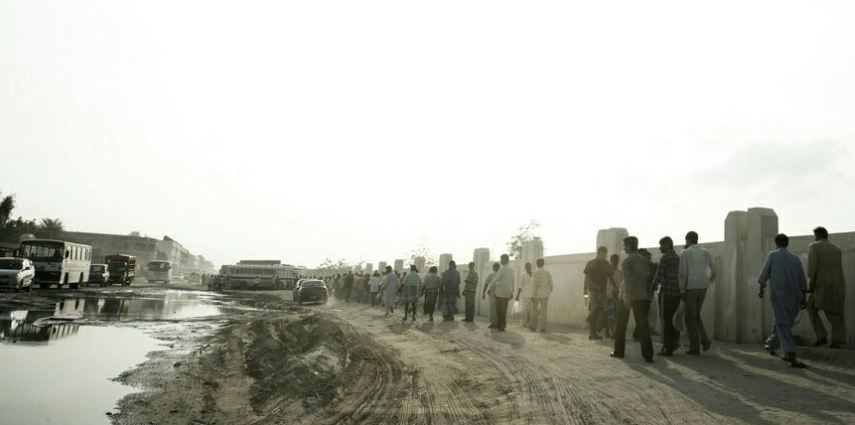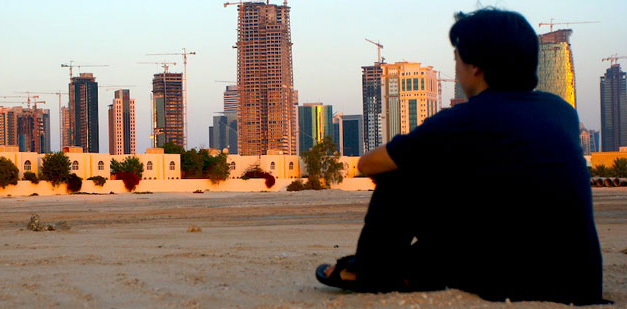Today, the TUC releases an eve-of-the-World-Cup report, detailing the experiences of workers who spoke to our researcher earlier this month.
The link to the report is below, but the foreword was written with the Playfair Qatar team, and is an important follow up to our last post 5 years ago.
______________________________________________________________________
In 2014, the TUC campaigned to draw attention to the appalling situation faced by migrant workers in Qatar tasked with building the infrastructure necessary to host the 2022 World Cup. Working with football fan groups, our campaign – Playfair Qatar – argued that, if urgent action wasn’t taken, the Qatar World Cup would be built on the blood and misery of thousands of workers.
In 2017, a much bigger campaign than ours, by the International Trade Union Confederation, made an incredible breakthrough in negotiations with the Government of Qatar. Qatar would urgently revise its labour laws, improving health & safety, introducing a minimum wage and ending the abusive sponsorship system (“kafala”) that gave employers control over almost every aspect of their workers’ lives.
The promises amounted to most of our campaign asks. So Playfair Qatar was paused, its last public statement asking the question, “have we won?”
On the eve of the World Cup, eight years after we first started talking about the terrible conditions faced by Qatar’s international workforce, we wanted to know: did we?
The answer is, of course, complicated. And it depends who you ask.
“Qatar’s system was still chewing up and spitting out workers, leaving them burdened with enormous debts”
There is no doubt that – belatedly, at least – Qatar, under pressure from the ITUC and the International Labour Organisation (ILO), has repaired its terrible labour laws with unprecedented speed. Legally speaking, the landscape faced by workers applying the finishing touches to the World Cup infrastructure is utterly different to the one faced by Qatar’s original workforce of trapped and coerced migrants.
From that perspective the news is good. No progress was possible in Qatar while its laws not only allowed extreme labour abuse, but actively enabled it. The concessions won by the ITUC are absolutely vital to protecting Qatar’s workers.
But labour laws are only as good as their enforcement, and the ability of workers to seek justice and compensation for their abuse. And we were hearing a lot of reports from other campaigning organisations, many of whom we had worked alongside for Playfair Qatar, telling us that the picture on the ground did not reflect the progress on Qatar’s statute books.
And, although this report focuses on worker’s rights, we also have deep concerns about women’s and LGBT+ rights, as well the harassment and imprisonment of journalists and bloggers.
So, the TUC sent a researcher out to Qatar to meet with workers and find out their stories. What they told us was that, for them and many of the people they knew, the Qatari system was still chewing up and spitting out workers, leaving them burdened with enormous debts.
They told us that kafala’s legacy lived on in overmighty employers controlling their workers, and that they stayed or left Qatar at those employers’ whim.
And they told us that trying to fix or get compensation for these problems remained difficult, expensive and could take years.
Two things appear to be true, and they are not mutually exclusive. Thanks to global campaigning, using the World Cup as leverage, the typical situation for workers in Qatar is stronger than it was eight years ago. But it is also true that, as we come to the final few weeks of the power of that leverage over Qatar, workers are still paying a shockingly high price to deliver the most expensive World Cup in history.





